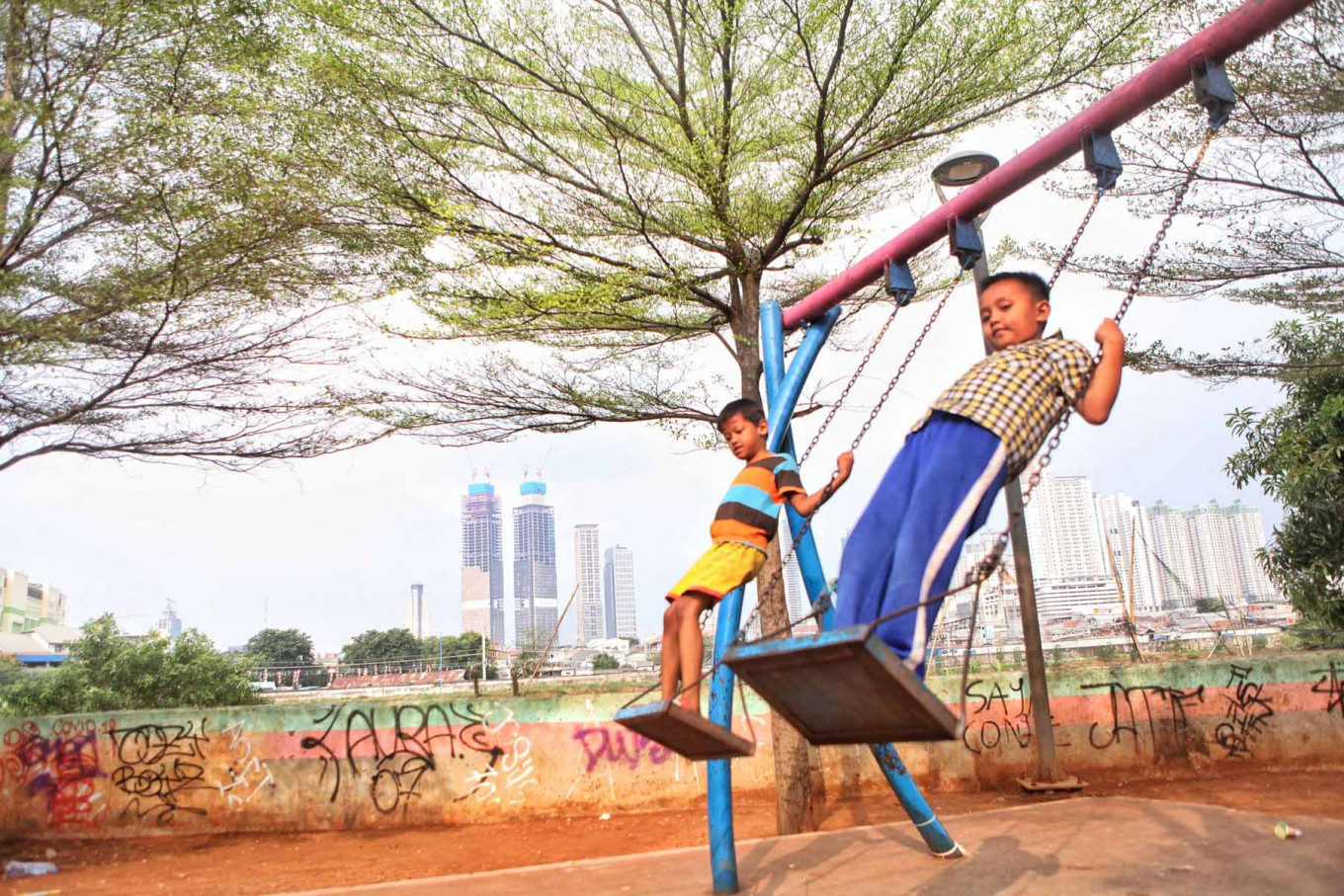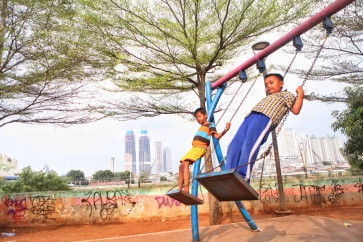Popular Reads
Top Results
Can't find what you're looking for?
View all search resultsPopular Reads
Top Results
Can't find what you're looking for?
View all search resultsHealth, environment experts renew calls for government to ban lead paint in Indonesia
As the Global Alliance to Eliminate Lead Paint marked the 9th annual International Lead Poisoning Prevention Week at the end of October, Indonesia saw renewed public calls to ban lead paint through legal instruments.
Change text size
Gift Premium Articles
to Anyone
E
xperts and activists have renewed their calls for the government to ban the use of lead-based paints, which can pose a health hazard, particularly for children.
Cofounder Yuyun Ismawati of the Nexus3 Foundation, which focuses on environmental health, said that the harmful effects of lead for human health had been discovered millennia before the global phaseout of lead and lead-based products.
Unlike other countries that have banned lead paint, Indonesia still allows the general use of the product and the regulatory instruments it has to limit the lead content in paint are mostly voluntary.
In 2015, Nexus3 studied 121 paint products from 63 brands and found that 83 percent contained more than 90 parts per million (ppm) of lead.
The study also surveyed 119 units of playground equipment in 32 parks in Jakarta and found that 69 percent used materials containing over 90 ppm of lead, in excess of SNI ISO 8124-3:2010 that sets the maximum safe level of lead in toys at 90 ppm.
Activists have been campaigning for years to discourage the use of lead paint, but Yuyun said that the government “remains neglectful of this issue”.
“We hope a comprehensive regulation will be made soon,” she added.


















